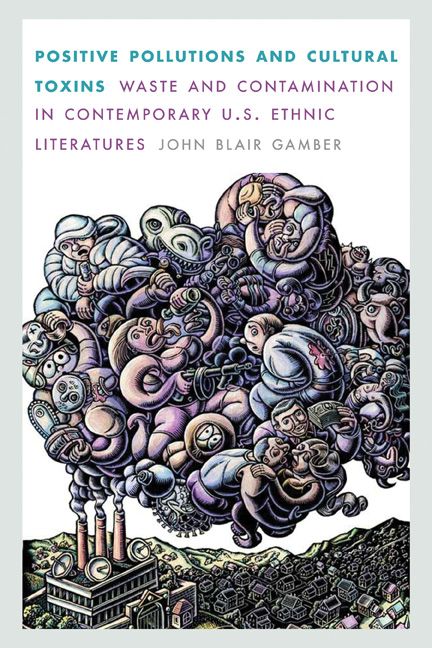
You superficial dolt. Stop thoughtlessly bashing garbage. Your intellectual superiors at the University of Nebraska Press have a book that will make you see "pollutions" (plural, you note: nice touch that) and "toxins" in a new light. The publisher was thoughtful enough to email me a PDF of their latest catalog, perhaps because I am a noted specialist in literary toxicology.
Like virtually all university presses, Nebraska's operates an assembly line of books about ethnicity. Nebraska seems to have a corner on the market for studies about Natives (American Indians to you). Positive Pollutions and Cultural Toxins: Waste and Contamination in Contemporary U.S. Ethnic Literatures, by John Blair Gamber, promises further advances in the waste dump, sorry, I mean to say field -- what the U. Nebraska Press calls its "Postwestern Horizons Series."
To further your understanding of this important subject, let us quote from the publisher's Web site:
John Blair Gamber examines urbanity and the results of urban living—traffic, garbage, sewage, waste, and pollution—arguing for a new recognition of all forms of human detritus as part of the natural world and thus for a broadening of our understanding of environmental literature.
Train yourself, if you have to, to recognize traffic, garbage, sewage, waste, and pollution. Or pollutions.
While much of the discourse surrounding the United States’ idealistic and nostalgic views of itself privileges “clean” living (primarily in rural, small-town, and suburban settings), representations of rurality and urbanity by Chicanas/Chicanos, African Americans, Asian Americans, and Native Americans, on the other hand, complicate such generalization.
The omission of LGBTs is blatantly heterosexist. Mr. Gamber will issue an abject apology at once or risk an invasion of his classroom.
That outrage aside, he's got your number. If you harbor idealistic and nostalgic views of rurality and urbanity as favoring cleanliness (see also: Godliness), have you even the shadow of an idea how insensitive you are to the Other who will shortly take your place?
Gamber widens our understanding of current ecocritical debates by examining texts by such authors as Octavia Butler, Louise Erdrich, Alejandro Morales, Gerald Vizenor, and Karen Tei Yamashita that draw on the physical signs of human corporeality to refigure cities and urbanity as natural.
Whew! As I read the list, I feared he would commit another faux pas by forgetting Karen Tei Yamashita. You simply can't talk about the physical signs of human corporeality without citing Karen Tei Yamashita.
He demonstrates how ethnic American literature reclaims waste objects and waste spaces—likening pollution to miscegenation—as a method to revalue cast-off and marginalized individuals and communities. Positive Pollutions and Cultural Toxins explores the conjunction of, and the frictions between, twentieth-century U.S. postcolonial studies, race studies, urban studies, and ecocriticism, and works to refigure this portrayal of urban spaces.
How fortunate we are in the this great miscege-nation to have ethnic literature to reclaim waste objects and spaces, cast-off and marginalized individuals, and cast-off and marginalized communities. Even if it involves some friction amid the conjunction. What do we want? Refigured portrayals of urban spaces! When do we want it? Now!
John Blair Gamber is an assistant professor of English and comparative literature at Columbia University and the coeditor of Transnational Asian American Literature: Sites and Transits.
And how fortunate as well that in this cusp between one super-recession and the next, when so many hard-working people have lost their livelihoods, at least Mr. Gamber is still in place at Columbia to carry forward the torch of scholarship.



No comments:
Post a Comment